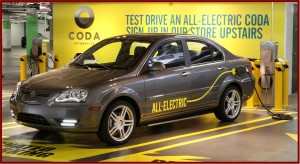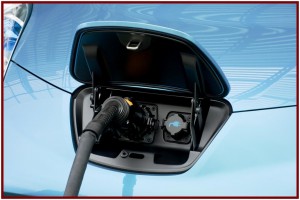While existing buyers of electric vehicles are true EV believers, the vast majority of car shoppers are not. In a new study, nearly half of current EV buyers claim the best benefit of their ac/dc wheels is lower emissions when compared with emissions from gasoline- or diesel-powered vehicles, and it’s not clear if they know how their electricity is generated.
However, when you get past this “puddle” of EV buyers – they don’t even form a “pool” since they comprise only about 2.5% of the U.S. new vehicle market of 14 million – and that is if you include hybrids; pure EVs have less than a 1% share – other people need to be brought into the clan. This assumes auto manufacturers are interested in recouping the billions invested so far in electric modes of transportation, prompted almost entirely by government regulations.
No surprise that people considering an EV for their next vehicle mostly want to lower their fuel costs. While 11% of consumers would consider an EV for its environmental benefits, 45% want to save money, according to a J.D. Power survey released today.
Power claims that current EV owners report an average monthly increase in their utility bill of $18 to recharge their vehicle’s battery, which is significantly less than the $147 that they would typically pay for gasoline during the same period.
Compared with sales prices for a similar gasoline-powered vehicle, the study finds that owners of all-electric vehicles pay a premium of $10,000, on average, while plug-in hybrid electric vehicle (PHEV) owners pay – gulp – a $16,000 premium, on average. Based on annual fuel savings, it would take an average of 6.5 years for EV owners to recoup the $10,000 premium, while the payoff point for plug-in hybrid ownership is 11 years.
“The payback period is longer than most consumers keep their vehicle,” said Neal Oddes of J.D. Power and Associates.
The study also shows that virtually all EV owners charge their vehicle at home. One-third of EV owners use a standard 120-volt outlet to charge their vehicle rather than install a special home-charging station for thousands of dollars, which can recharge an electric vehicle in half the time that it takes when using a standard 120-volt household outlet, and provides in theory in some areas the ability to uses lower off-peak electricity rates.
EV owners who have a 240-volt charging station placed in their garage pay an average of $1,500 for equipment, installation and inspection, plus a monthly amount for the electricity used. However, the study finds that 43% of owners received their home charging station for free – a giant subsidy, or socialism for the rich, courtesy of U.S. and state taxpayers. Among those who do pay, the cost of the charging station, installation and inspection are recovered through fuel savings in the first year of ownership.
Nearly one-half (43%) of EV owners say they also charge their vehicle away from home – at work, shopping malls and airports. Of these 85% EV owners don’t pay for the service since somebody else is picking up the bill. In fact Coda, a nascent EV company in California with Chinese backing, has an early owner who has never payed to have his Coda sedan recharged. Coda uses a generations old car based on a Mitsubishi sedan that is partially assembled in China and converted to an EV in northern California.




I didn’t realize I would be the only one driving for a couple of days and everybody else would be just in a tough position. (This Nissan Leaf owner is from Long Island, New York, and he is talking about his post Hurricane Sandy automobility when the lack of power at gas stations caused gasoline shortages and huge lines. – editor)